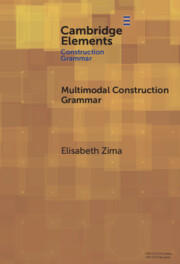Refine search
Actions for selected content:
1 results

Multimodal Construction Grammar
-
- Published online:
- 25 August 2025
- Print publication:
- 25 September 2025
-
- Element
- Export citation
